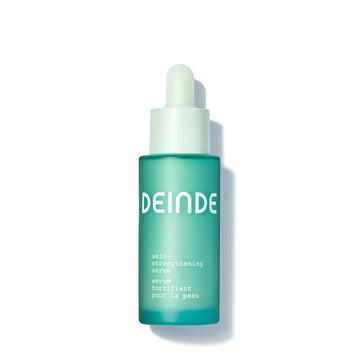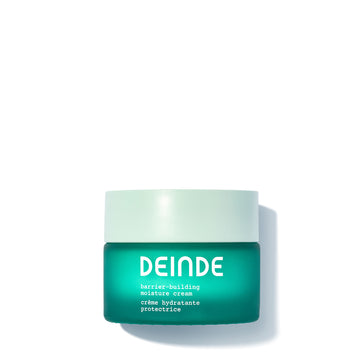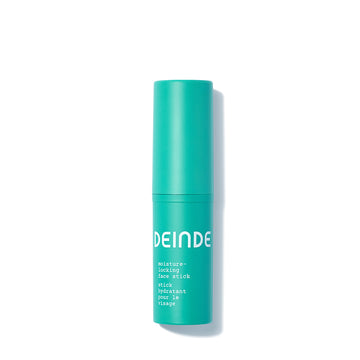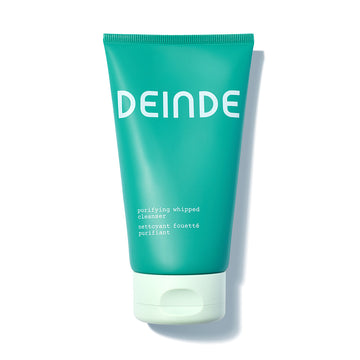
11 of the Best Foods for Skin Health, Explained
If glowing skin is on your vision board, it’s time to boost your favorite serums and creams with the best foods for skin health. Not only can a nutrient-dense plate help keep your complexion clear and bouncy, it also plays a key role in inflammaging management.
“Diet can play a significant role in skin health, affecting everything from hydration and skin elasticity to the incidence of inflammatory skin conditions like acne and eczema,” says Y. Claire Chang, M.D., a board-certified dermatologist at UnionDerm in New York. A balanced diet geared toward maintaining healthy skin is one that’s “rich in vitamins, proteins, and healthy fats,” says Dr. Chang.
In other words, pay attention to what you’re putting on your face and on your plate. Not sure which foods pair best with your moisture-locking face stick? We asked dermatologists to weigh in on the best skin-friendly nutrients and foods to add to your daily diet. Below, their expert-approved recommendations.
What Are Some Key Nutrients for Skin?
When it comes to getting nutrients for skin through supplements, proceed with caution. While they offer a convenient way to boost your vitamin and mineral intake, dermatologists don’t recommend taking them for skin health without first speaking to your primary care doctor.
“For supplement doses, you need to be careful because some people may have adequate levels and other people may have deficiencies,” says Joshua Zeichner, M.D., F.A.A.D., a board-certified dermatologist and director of cosmetic & clinical research in dermatology at Mount Sinai Hospital in New York. “Even though it may be over the counter, it does not mean that a product is necessarily safe to take."
One example is vitamin A, an ingredient dermatologists regularly recommend for skin (in the form of retinol). “While topical vitamin A in the form of retinol is good for the skin, I absolutely do not recommend taking high doses of vitamin A supplements,” cautions Dr. Zeichner. Taken orally, this ingredient can “cause skin dryness, affect your vision, increase the risk of sunburn, and even lead to liver toxicity and increase cholesterol.”
Dr. Chang agrees that nutrient intake through food is her recommended way to “ensure healthy skin” if you don’t plan to make a doctor’s appointment. “It is unclear that supplementation will help with skin specifically unless you are actually deficient in these nutrients—and excess levels of certain vitamins can actually cause issues,” she says.
So remember: Load up on these nutrients through food first.
Gamma Linoleic Acid (GLA)
Your skin barrier, or the outermost layer of your skin, keeps external stressors out and crucial moisture locked in. When it’s disrupted, your complexion gets dehydrated, sensitive, and inflamed. To counteract this, add more gamma linoleic acid (GLA) to your diet.
“Studies have shown that consumption of high levels of GLA helps improve skin barrier function and hydration,” says Dr. Zeichner. “GLA is an essential omega-6 fatty acid that we need for proper health. It plays a role in brain function as well as healthy skin and hair growth.”
Because our bodies don’t make GLA, we need to get it through our diet (more on the best foods for this below).
Omega-3 Fatty Acids
Omega-3 fatty acids are another essential fatty acid for skin health and a graceful aging process. “It’s found in fish, flaxseeds, and walnuts and may help maintain skin barrier function and reduce inflammation,” says Dr. Chang. Further clinical studies are needed to confirm its role in aiding skin conditions, but there’s some promising evidence.
“While the jury is still out, it may help to improve inflammatory skin conditions like psoriasis, acne, and eczema,” she says.
Polyphenols
Polyphenols are crucial to maintaining healthy skin and warding off signs of aging. Our hero ingredient, Naringenin, is derived from polyphenols like those typically found in citrus peels. It doesn’t hurt to eat it, too. “Polyphenols are a type of antioxidant,” says Dr. Zeichner.
“They serve as a fire extinguisher to put out damage caused by free radicals caused by environmental exposures such as UV light and pollution.”
Vitamin C (and E)
“Vitamins C and E are potent antioxidants that actually work better when taken together rather than taking one or the other separately,” says Dr. Zeichner. Dr. Chang also recommends getting vitamin C in your diet because it’s “essential for collagen production, which keeps skin firm and elastic.”
If you’re deficient in this vitamin, it may show up as “fragile skin, easy bruising, and keratosis pilaris,” she says. As antioxidants, these nutrients may also help support your skin against damage caused by UV rays.
What Are the Best Foods for Skin Health?
Since you usually go grocery shopping with a list of foods—not nutrients—in hand, we asked Dr. Chang and Dr. Zeichner to share a list of foods rich in skin-friendly nutrients.
Their picks are easy to incorporate in a wide range of meals, but if you’re short on inspiration, Dr. Zeichner says “the best diet for skin is thought to be the Mediterranean diet,” which involves plenty of fish, leafy greens, and nuts.
Salmon
“This fatty fish is rich in antioxidants and omega-3 fatty acids that calm skin inflammation and provide building blocks for healthy skin cell function,” says Dr. Zeichner. Dr. Chang also recommends adding salmon to your diet to help “reduce inflammation and keep skin moisturized.”
Avocados
If you needed another reason to start your day with avocado toast (a personal favorite breakfast), here it is. Avocados are “rich in healthy fats and vitamins E and C, which help protect and repair the skin,” says Dr. Chang.
Nuts
Nuts are a nutrient powerhouse for both your skin and overall health. “Nuts like walnuts and almonds provide essential fatty acids, zinc, and vitamin E, supporting overall skin health,” says Dr. Chang. Walnuts, almonds, and cashews in particular are good sources of linoleic acid, an omega-6 fatty acid that our bodies convert to GLA.
Green Leafy Vegetables
One of the easiest ways to up your antioxidant intake is by eating a daily serving of leafy greens like kale, cabbage, and arugula. “They’re rich in antioxidants that neutralize free radical damage,” says Dr. Zeichner. “They put out inflammation in the skin that leads to collagen damage and premature skin aging.”
Spinach
Spinach falls under the category of leafy greens, but Dr. Chang singles it out as a particularly nutrient-dense example. “Spinach contains vitamins A, C, and E, as well as antioxidants that may protect the skin,” she says.
Olive Oil
Whether you cook with it or drizzle it over prepared foods, olive oil is an underrated skin hero. “It’s rich in antioxidants such as vitamin E and hydrating squalene,” says Dr. Zeichner. “Squalene is found naturally in our skin and provides moisturizing properties.”
Sweet Potatoes
Sweet potatoes are Dr. Chang’s recommended method for safely adding more vitamin A to your diet. “Sweet potatoes are high in beta-carotene, which the body converts to vitamin A,” she says.
Bell Peppers
Dr. Chang also loves bell peppers as a source of vitamin A. (They’re another vegetable high in beta-carotene.)
Blueberries
When it comes to fruit, blueberries are one of the best sources of powerful antioxidants. Dr. Zeichner recommends them for their high polyphenol content, while Dr. Chang says that they’re “packed with antioxidants that fight free radicals and prevent premature aging.”
Green Tea
Even if you’re devoted to your daily cup of coffee, consider swapping your second cup for a mug of green tea. “Green tea is rich in polyphenols, which have anti-inflammatory and antioxidant properties,” says Dr. Chang.
Dark Chocolate
Dark chocolate is a surprisingly skin-friendly dessert. “It’s rich in polyphenols,” says Dr. Zeichner. “Dark chocolate has long been touted for its benefits in helping prevent sun damage.”
Not everything you eat will align with this list, and that’s fine. If you have acne, rosacea, eczema, and psoriasis, avoiding “inflammatory foods” (anything high in sugar and carbs) can “help prevent worsening of existing inflammatory skin conditions,” says Dr. Chang.
Still, some meals—like a Friday-night pizza and wine pairing—are just for joy. Don’t feel the need to cut them out of your diet, but enjoy them in moderation.
Meet the Experts
-
Claire Chang, M.D. is a board-certified and fellowship-trained cosmetic dermatologist at UnionDerm in New York. She specializes in cutaneous laser treatments, facial and body contouring, and injectable treatments. Dr. Chang is an expert in skin of color and Asian beauty trends, and she frequently travels back and forth from Asia to bring the latest cosmetic trends to her patients. She has published numerous articles in peer-reviewed journals, written multiple dermatology book chapters, and presented her research at several national dermatology meetings. She is a member of the American Academy of Dermatology, American Society of Dermatologic Surgery, American Society for Laser Medicine and Surgery, and the Women’s Dermatologic Society. She also serves as a clinical instructor of dermatology at the Mount Sinai Medical Center.
- Joshua Zeichner, M.D., F.A.A.D., is an Associate Professor of Dermatology and the Director of Cosmetic & Clinical Research in Dermatology at Mount Sinai Hospital in New York City. He is one of the country’s key opinion leaders in treating acne and rosacea, and is an expert in cosmeceuticals, skin care, and cosmetic dermatology. As an educator, Dr. Zeichner teaches dermatology residents and regularly lectures to international audiences at the major Dermatology meetings. His work has been published in the top peer reviewed dermatology journals, and he can be found quoted across national media.
Sources:
Free Radicals and Extrinsic Skin Aging | PMC
Ultraviolet (UV) Radiation: What It Is & Its Effect on Your Skin | Cleveland Clinic
Effects of Sun Exposure | Family Doctor
Diet and skin health: The good and the bad | NCBI








